Rio 2016: Non-sponsors can now dream of Olympic gold
- Published
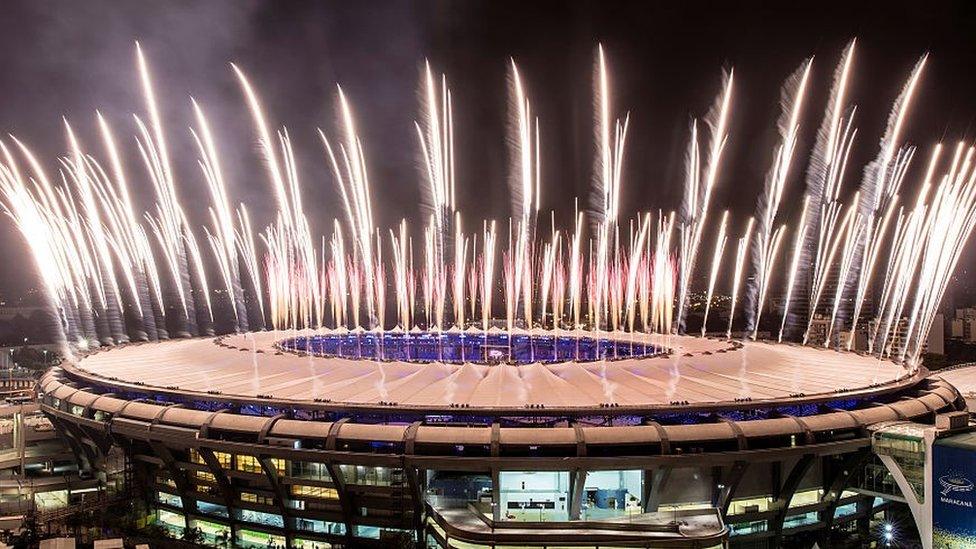
As the greatest sporting show on earth gets under way in Rio, there is an Olympic buzz not only among fans, but in the world of sports sponsorship too.
For the 2016 Games, in addition to changes in the sporting arena - with sports like rugby sevens and golf added - there are also important sponsor changes.
The International Olympic Committee (IOC) has relaxed the rules around athletes - such as six-time gold medal winner Usain Bolt - who have commercial deals with firms that are not official Olympic sponsors.
For the first time those athletes can feature in promotions for their brands during the Rio 2016 period. Previously the IOC's Rule 40 had imposed a blackout period throughout the Games for this type of "non-official" advert.
In the case of the UK, as long as advertising campaigns were up and running by 27 March, and were approved by the British Olympic Association, they can continue throughout the duration of Rio 2016 - something unheard of before.
'Creative thinking'
"There was a lot of negative feedback from the athletes at London 2012 about the advertising restrictions they faced, and the IOC said they would review the rules because of this unhappiness," says Karen Earl of the European Sponsorship Association (ESA).
"Athletes, who are often at their earnings peak during an Olympic Games, became angry four years ago as they could not financially capitalise on their fame at a time when they were in the global spotlight.
"There was never much possibility that there would be a total relaxation by the IOC of Rule 40. But what they have done has allowed athletes and their backers to think carefully outside the box and come up with creative advertising."
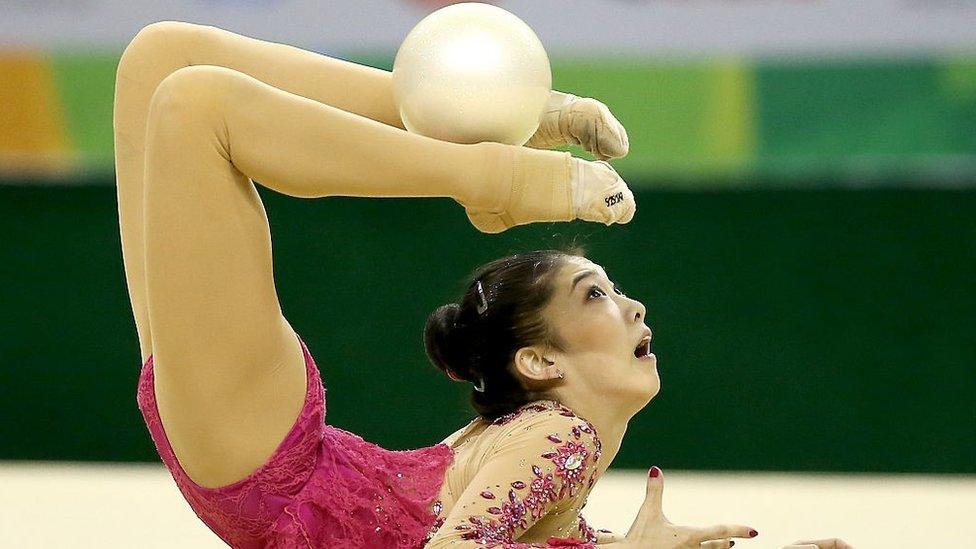
Non-official advertising campaigns cannot create an association with Rio 2016
However, certain restrictions remain in place, with certain banned phrases still not allowed, including "Olympic", "Rio", "gold" and "Games".
And any adverts from non-sponsors must also "not create any impression of a commercial association with the Olympic Games".
(In addition, if an advertising campaign is to be run in a number of countries during the Games period, then it needs the approval of the IOC as well as the home Olympic association.)

Why does the IOC have Rule 40?
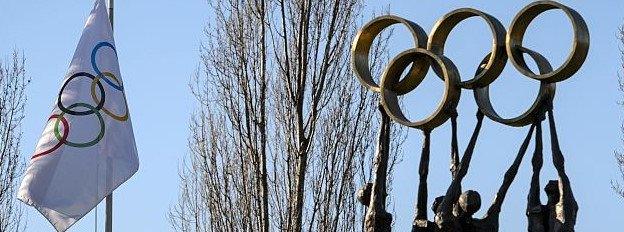
The IOC says Rule 40 is in place for various reasons, including:
to preserve the "unique nature" of the Olympics by preventing over-commercialisation
to protect the exclusive rights of official sponsors
to allow the Games' focus to remain on athletes' performance rather than their ads

Be The Fastest campaign
Among those taking advantage of the relaxation of the rules and thinking creatively have been Virgin Media and Usain Bolt.
The company has been running series of adverts around the theme of Be The Fastest, focusing both on the fact that Bolt is the world's fastest man, and Virgin Media's broadband speeds.
The advert has no Olympic Games association but does reference his 100m world record time set in Berlin in 2009.
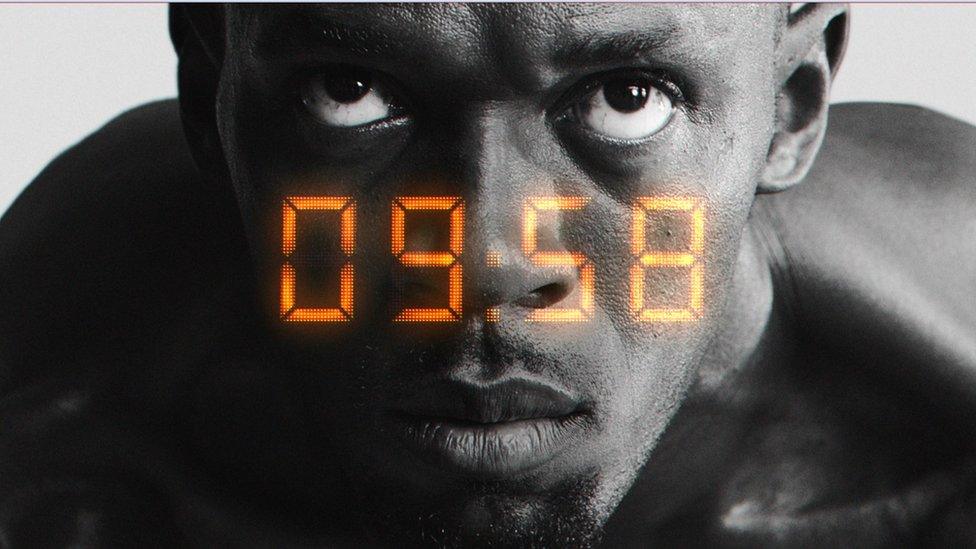
The Bolt campaign refers to his world-record breaking 100m run in Berlin in 2009
Virgin says it will be running the campaign during the Rio Games, having launched it in late March in order to comply with all the new IOC guidelines.
"This campaign with Usain Bolt was conceived quite some time ago," says Ginni Arnold of Virgin Media.
"We started in quite a low-level way with Bolt in the starting gun position," she says. "We did that to make doubly sure that we complied with the new IOC cut-off times for launching campaigns."
Social media
In fact, Virgin started the process of making sure their ad was IOC compliant as early as January, with its ad agency BBH in contact with both the British (BOA) and Jamaican (JOC) Olympic associations.
In March it was given permission from the BOA to run the advertisement throughout the Olympic Games. As the campaign is only running in the UK it did not need IOC approval too.
But before running on TV, Virgin Media initially put out its Bolt advertising in March in print - Sunday newspapers and billboards - and on social media - on Twitter and other outlets.
"The whole campaign needed to be up and running a significant time before we approached the official Olympic Games period, to make sure it was compliant," says Ms Arnold. "The TV ad too was all checked, everything had to meet IOC guidelines."
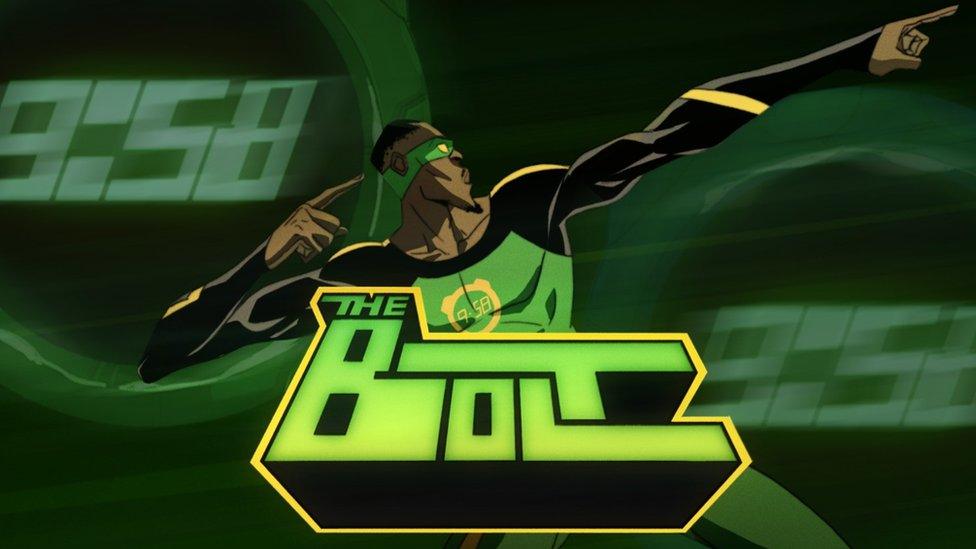
The Usain Bolt campaign has run in newspapers and on billboards, social media and TV
Ms Arnold says Virgin Media has a positive view of the tweaked Rule 40, and recognises that the IOC has a duty to protect its official sponsors.
"For us it is positive," she says. "It is a good thing, it allows us to capitalise on our long-standing association with Bolt, during a period when previously we would not have been able to do so.
"It is fantastic to be able to run the campaign. But at the same time we are always respectful and mindful of the criteria and rules around the world's greatest sporting event. "
Balancing act
And Ms Earl of ESA says the IOC has done its best to create a delicate balancing act.
Athletes remain frustrated about restrictions on what they can say about their sponsors on social media during the Games, and Ms Earl admits "athletes did think there would be a far greater relaxing of the system".
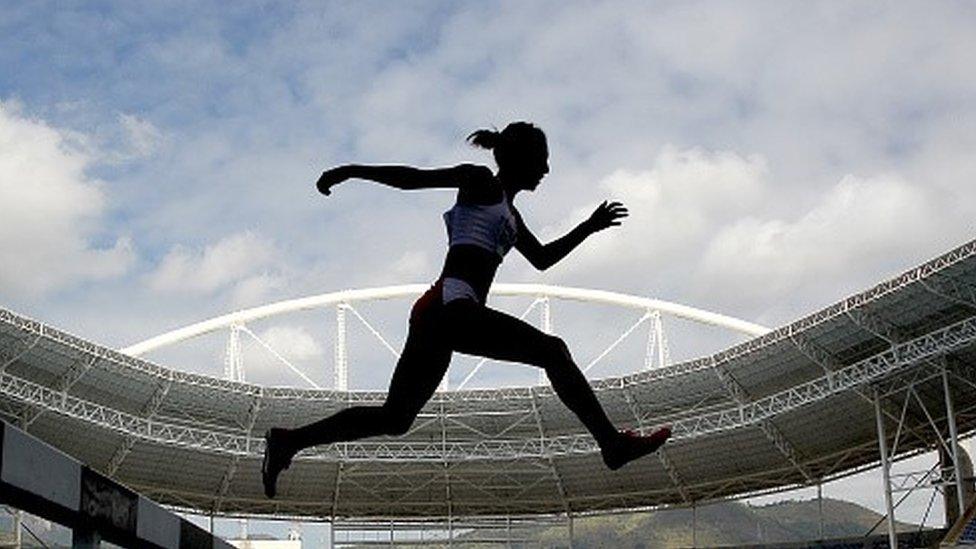
The IOC has tried to meet the needs of athletes as well as those of official sponsors, says Ms Earl
"But the IOC could not really afford to do that as they do not want to upset their official sponsors," she says.
"They wanted to protect their sponsors' rights, but at the same time open the door slightly to other athletes and their brands."

The Rio 2016 official sponsors
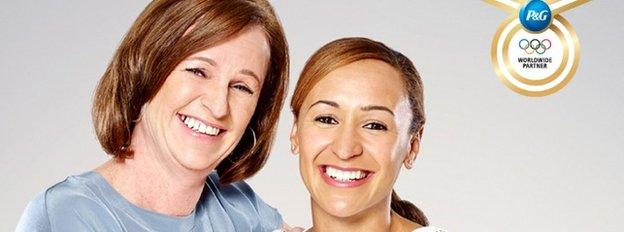
There are 12 big international brands who are IOC official global partners, plus separate Rio 2016 sponsors and partners.
These firms, including the likes of Coca-Cola, McDonald's, Samsung and Visa, have paid handsomely to use trademarked Olympic phrases and imagery, with the money they pay for those rights providing the bulk of the money to run the Games.
"The official sponsors pay a lot of money for their packages," says the ESA's Karen Earl.
"And they don't just run campaigns saying 'we are an official sponsor' - they spend a lot of time and effort too in coming up with campaigns that are relevant and connect with consumers, and which they can understand."
These Olympic sponsors get little or no branding in the stadium, and none on the front of sporting kit, so much official sponsor advertising has to be done via high-profile advertising campaigns featuring Olympians - such as P&G's with gold medal winning heptathlete Jessica Ennis-Hill.
